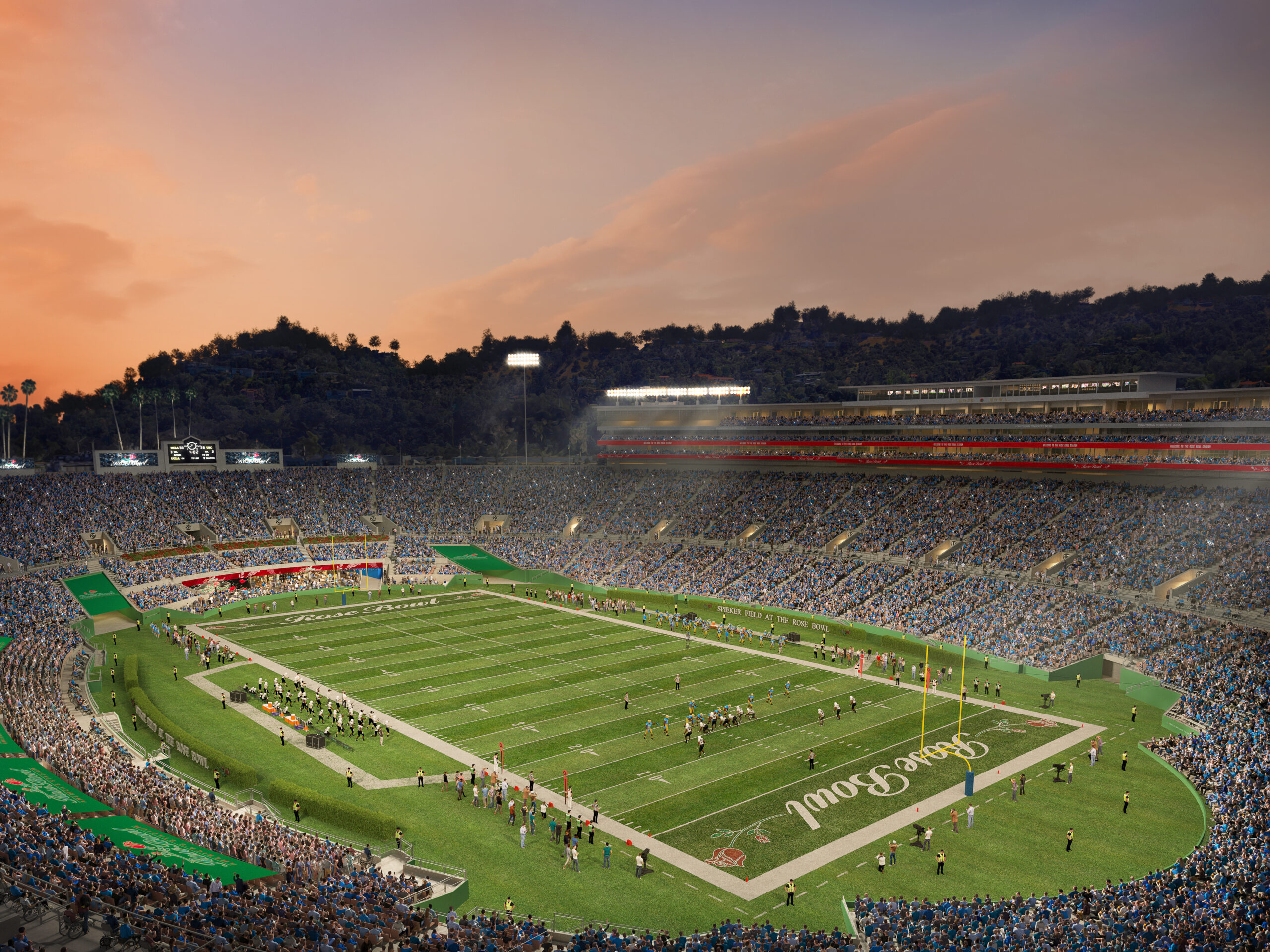
One of the most historic sports venues in the world will be getting updates as the Rose Bowl Stadium’s operating company and the Rose Bowl Legacy Foundation announced a legacy fundraising campaign to revitalize the Pasadena stadium over the next several years.
Among the projects are a new field-level club to be built in the Rose Bowl’s south end zone, east side safe standing sections, a sound system replacement, enhancements to fan technology and connectivity, improvements to the venue’s bowl seating and the installation of one of the nation’s largest videoboards. A full refurbishment of the Rose Bowl marquee sign is also included.
The projects will be completed in two phases, with phase one aiming to be complete in 2026 and phase two beginning after the 2028 Olympic and Paralympic Summer Games. Some projects including a historic marquee sign refurbishment, the seating bowl sound system replacement and east side safe-standing section were already completed prior to UCLA’s first season in the Big Ten Conference this fall. Remaining Phase I projects include infrastructure replacement and improvement, stadium cellular service enhancement and the end zone field club with back of house amenities to support hospitality and event experiences.
Phase II will include major improvements to bowl seating and the installation of a new videoboard. The Rose Bowl Lasting Legacy campaign will be led by private funds raised by the Rose Bowl Legacy Foundation, as well as contributions from the venue’s third-party partners and vendors.
“Thanks to the leadership of the Rose Bowl Operating Company Board of Directors and due to the tireless efforts of the Rose Bowl Legacy Foundation Board and Advisory Boards, the Rose Bowl Stadium has never been better positioned to thrive. These investments will help ensure that we remain one of the most dynamic football, soccer, concert and festival venues in the world,” said Jens Weiden, chief executive officer of the Rose Bowl Operating Company.
The Rose Bowl Stadium celebrated its centennial birthday in 2022 and is a National Historic Landmark. The stadium was built in 1922 to host college football’s first postseason bowl game and the Rose Bowl Game is a quarterfinal site of the College Football Playoffs for the next two seasons. UCLA has played home football games at the Rose Bowl since 1982 and the stadium will host games in the 2025 FIFA Club World Cup and its third Olympic Summer Games in 2028.
“The Lasting Legacy Campaign is a crucial step in reaffirming the Stadium’s place as a global icon in sports, entertainment and culture,” said Dedan Brozino, president of the Rose Bowl Legacy Foundation. “Our donor base has grown so much over the years and has followed the example set by our Board of Directors and Advisory Board, all of whom are volunteers.”






























 Copyright © 2025 by Northstar Travel Media LLC. All Rights Reserved. 301 Route 17 N, Suite 1150, Rutherford, NJ 07070 USA | Telephone: (201) 902-2000
Copyright © 2025 by Northstar Travel Media LLC. All Rights Reserved. 301 Route 17 N, Suite 1150, Rutherford, NJ 07070 USA | Telephone: (201) 902-2000